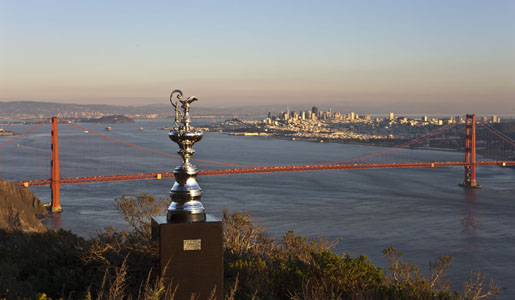The America’s Cup Act, signed into law by President Obama in December, enables the 34th America’s Cup to be hosted in the United States by authorizing certain eligible vessels to participate in the events.

©2011 ACEA/Gilles Martin-Raget
Published: January, 2012
The America’s Cup Act, signed into law by President Obama in December, enables the 34th America’s Cup to be hosted in the United States by authorizing certain eligible vessels to participate in the events.
"We thank President Obama for the passage the America’s Cup Act of 2011 into law, and applaud the tremendous bipartisan efforts of members of the U.S. Senate and U.S. House of Representatives in making this legislation a reality," said Richard Worth, Chairman and CEO, America’s Cup Event Authority. "The America’s Cup will not just swell civic pride, it will also provide a wave of economic benefit for the United States."
The upcoming America’s Cup events in Newport, Rhode Island and San Francisco are estimated to create thousands of jobs and over $1 billion in economic impact over the next two years. Third-party sources estimate a $72-million economic impact for Newport, Rhode Island, which will be held in June 2012, and over $1 billion in economic impact to the San Francisco Bay area, with more than 8,500 jobs estimated to be created due to the America’s Cup.
"The America’s Cup Act of 2011 will enable us to deliver the greatest America’s Cup the world has ever seen, showcasing American venues on the world stage as top international sporting destinations. We hope at the same time that the event will serve as a catalyst for long-term economic development in each of these cities," continued Worth.
The 34th America’s Cup continues to build upon its rich heritage of leading-edge innovation with an event that is designed to showcase the best sailors in the world on the fastest boats. For the first time in history, the America’s Cup will be able to be seen from shore, creating tremendous public access for spectators as well as drawing large spectator crowds to benefit the port cities being visited.

